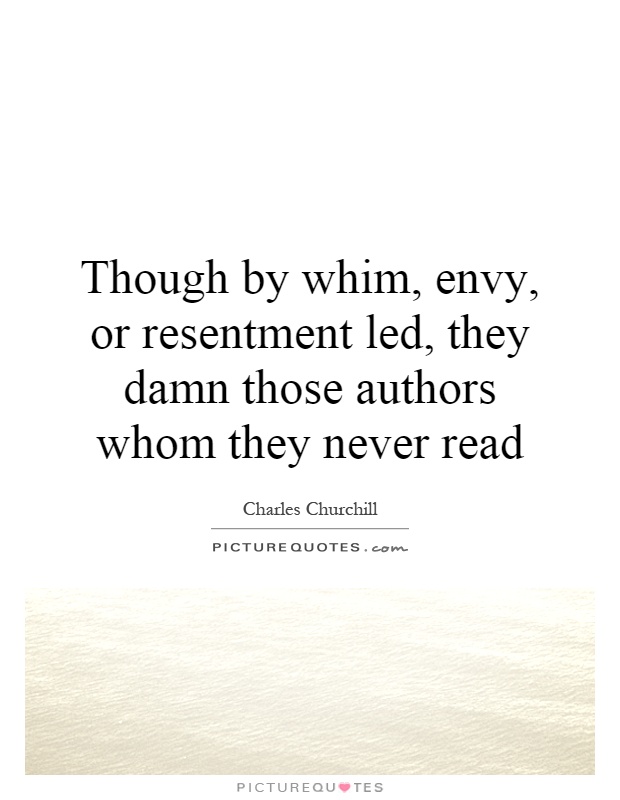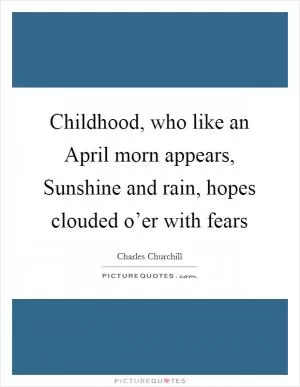Though by whim, envy, or resentment led, they damn those authors whom they never read

Though by whim, envy, or resentment led, they damn those authors whom they never read
Charles Churchill was an English poet and satirist who lived during the 18th century. He was known for his sharp wit and biting criticism of the political and social issues of his time. Despite his talent and influence, Churchill faced criticism and condemnation from many of his contemporaries who never bothered to read his works.The quote "Though by whim, envy, or resentment led, they damn those authors whom they never read" perfectly encapsulates the attitude of Churchill's detractors. Many of his critics were quick to dismiss his work without ever taking the time to actually read it. Instead, they relied on hearsay, gossip, and personal biases to form their opinions of Churchill and his poetry.
One of the main reasons for the animosity towards Churchill was his outspoken criticism of the government and the ruling class. His satirical works often targeted powerful figures and institutions, which made him a target for those in positions of authority. Rather than engage with his ideas and arguments, Churchill's critics chose to vilify him based on their own preconceived notions and prejudices.
Envy also played a role in the negative reception of Churchill's work. As a successful and popular poet, Churchill attracted a great deal of attention and admiration from the public. This success may have sparked jealousy and resentment among his peers, leading them to denounce him without giving his poetry a fair chance.
Despite the unfair treatment he received, Churchill's work has stood the test of time and continues to be studied and appreciated by scholars and readers today. His sharp wit, keen observations, and fearless criticism of the status quo have earned him a place in the canon of English literature. The quote serves as a reminder that it is important to approach literature with an open mind and a willingness to engage with ideas that may challenge our beliefs and assumptions.












 Friendship Quotes
Friendship Quotes Love Quotes
Love Quotes Life Quotes
Life Quotes Funny Quotes
Funny Quotes Motivational Quotes
Motivational Quotes Inspirational Quotes
Inspirational Quotes